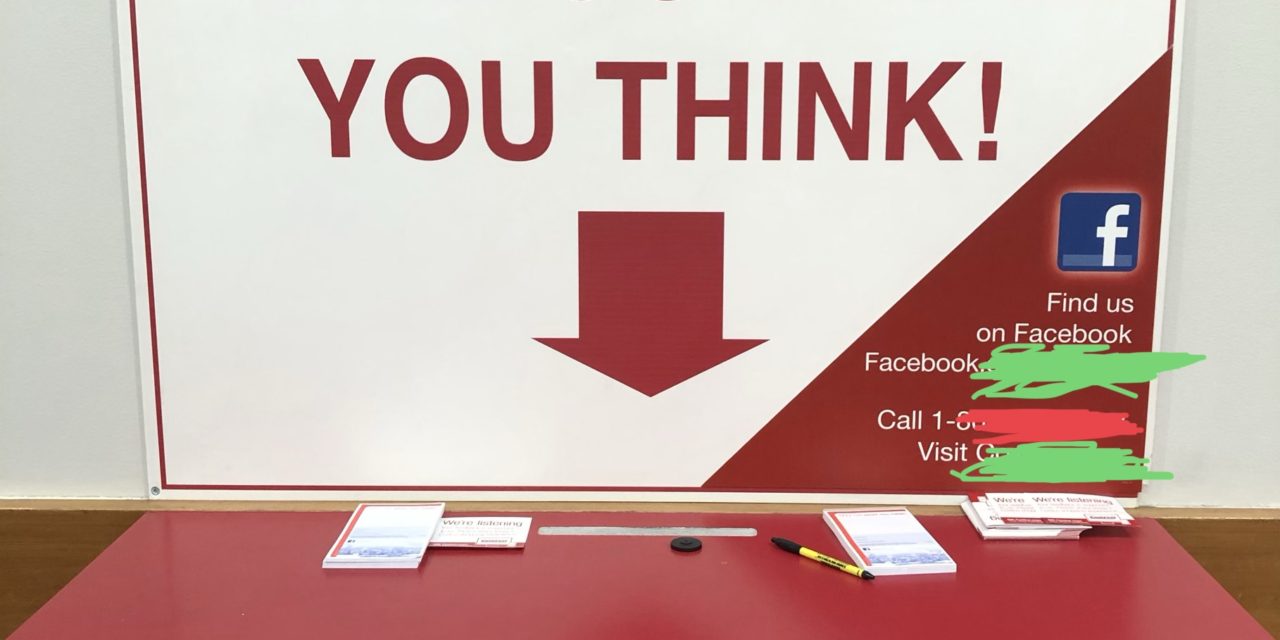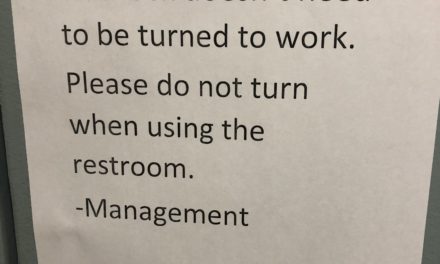
You are the brand of the company you work for!
A simple Google search will net the fact that baking season is at its highest peak during the typical traditional late fall and early winter holiday months. This means someone might be expect items such as baking powder and be readily stocked at all stores.
Somebody who knows these facts without Googling them lives with me. Upon embarking on a recent journey to our local warehouse club, just before the holidays jumped into full gear, I was invited to remind anyone I saw that baking powder should be stock and if it wasn’t there must be something wrong with their inventory management and algorithms.
Sure enough, for the second trip in a row during this season, there was no baking powder stocked on the shelves anywhere. At the checkout stand, I was ready to deliver my well-prepared invitation to get it stocked. The conversation was fairly dispassionate, and reminiscent of my parchment paper invitation of the summer of 2016, and went something like this, “can you please check your inventory system to see if you have any baking powder or if you know if you’ll be getting some in, in the next couple of days? It is baking season you know?!?”
I was grateful for the two employees that fielded my question. They gave the effort to checked their system and even went to check at another station with a leader. Both returned the same information that it was not in stock and it was not anticipated to be in stock for sometime. After some slight sarcasm over the whole baking season and the name baking powder, I asked how I might go about requesting that baking powder always is plentifully stocked during this season of baking.
Sadly, their patience and good spirits wore off and what came next greatly surprised me and points some great challenges that as organizations leaders either put our employees in or our employees choose to show a lack of ownership on the matter.
Almost in unison, completely non-verbally and with no eye contact whatsoever, they simply in response to my question by both pointing to there right to a large red station titled, “We value your opinion, tell us what you think!” Please note that you see a pen in the picture, I had to go ask someone else for that pen because that station didn’t even have a pen.
I replied, ‘Is this my very best option?’. It was clear from the body language that they were tired of being asked these questions and they were ready to be done with the whole baking powder part of the conversation and I got a “Yep” (with no eye contact) from one clerk and a “Please say that we were very helpful on the form” from the other.
One more story before I get to my point.
On our way home from a very pleasant Christmas trip, we were all seated in the plane ready to take off. Then we hear the pilots voice over the loudspeaker. Had we not had such a wonderful experience I might have dreaded hearing about a possible delay, but I was in a very calm state of mind with my entire family and I was okay no matter what I was going to hear. Or so I thought.
It was, in fact, an announcement about a delay but that is not what ruined my mood. It was that the pilot’s announcement, from the cockpit, went something like this, “Ladies and gentlemen we are very sorry to inform you about the delay but [airline’s name] haven’t finished their catering so we can’t take off. As soon as [airline’s name] do their job we will be on our way, thank you for your patience.”
The most concerning part of the customer experience of these two situations where the dismissal, lack of engagement and lack of ownership as they seem to be extremely siloed in their approach of doing their job and disconnecting themselves from the very organization for which they were employed.
Just a few points if I may before sharing an example of the perfect approach and opposite of these two situations.
1) Any customer offering to give feedback, look them in the eyes and take it from them right then! You may at some point later send them to your more formal gathering of feedback but never miss a chance to let the customer know if it’s concerning to them you want to understand it. Only ever send a customer to a “suggestion basket” after they know you have heard and understood their concern.
2) As an employee or as a leader you are a walking billboard for the company that employs you. You are in no way enslaved to them (that is a whole different topic I’m passionate about) but you absolutely have the responsibility to represent them in the very best way possible and to represent yourself in the very best way possible. Any attitude ever in front of a customer of that’s not my job, means you probably really don’t want, and maybe shouldn’t have, any job with that organization.
3) Never look for somebody to be the bad guy so you can feel better about what you’re doing. You and your organization are a team you both have great strengths and you both have some flaws, but you need to work together. Never work against each other and especially never pit a customer against the company by your comments or your behavior. You’re only shooting yourself in the foot if you do.
4) Face the people and look them in the eyes. It is better for you and much better for the customer.
Let me close by countering these two experiences with a powerful example of the right way to do it.
Waiting to board a red-eye flight and filled with all the exhaustion of how anybody approaches a red-eye flight, I hear an announcement over the loudspeaker in the gate area. The voice sounds very different from the other voices that have been making the announcements so far. I looked over and noticed the announcement is are coming from someone in a pilot uniform, his name is Jerry. He told us the flight was going to be a little delayed. From then through the entire course of the delay, each update that we got was from Jerry. First a brief apology for the delay and then explaining the detailed matter of the delay. He’s taking into account our safety always and ensuring that everything will be 100% ready before we take off. He spoke from a point of view that we were in his trusting and care and that he takes that responsibility very seriously and that he partners with his organization to make sure customers have the most comfortable safe and enjoyable experience possible. It was clear he was making every effort possible to minimize the impact the delay, and he was making himself available completely as the face of the organization he represented by not just making these announcements from behind a counter, but also walking the rows of the seated customers to answer any questions they might have. Jerry never hiding behind the shield of his company, nor did he throw them under the bus ( or parted airplane) for the situation.
Without any snide comments or Jerry of the Day references, we all need to be aware of or become this kind of Jerry in our organization. We’ll enjoy our roles more and we’ll enjoy our interactions with customers more fully. Full send 😉






What is being talked about…